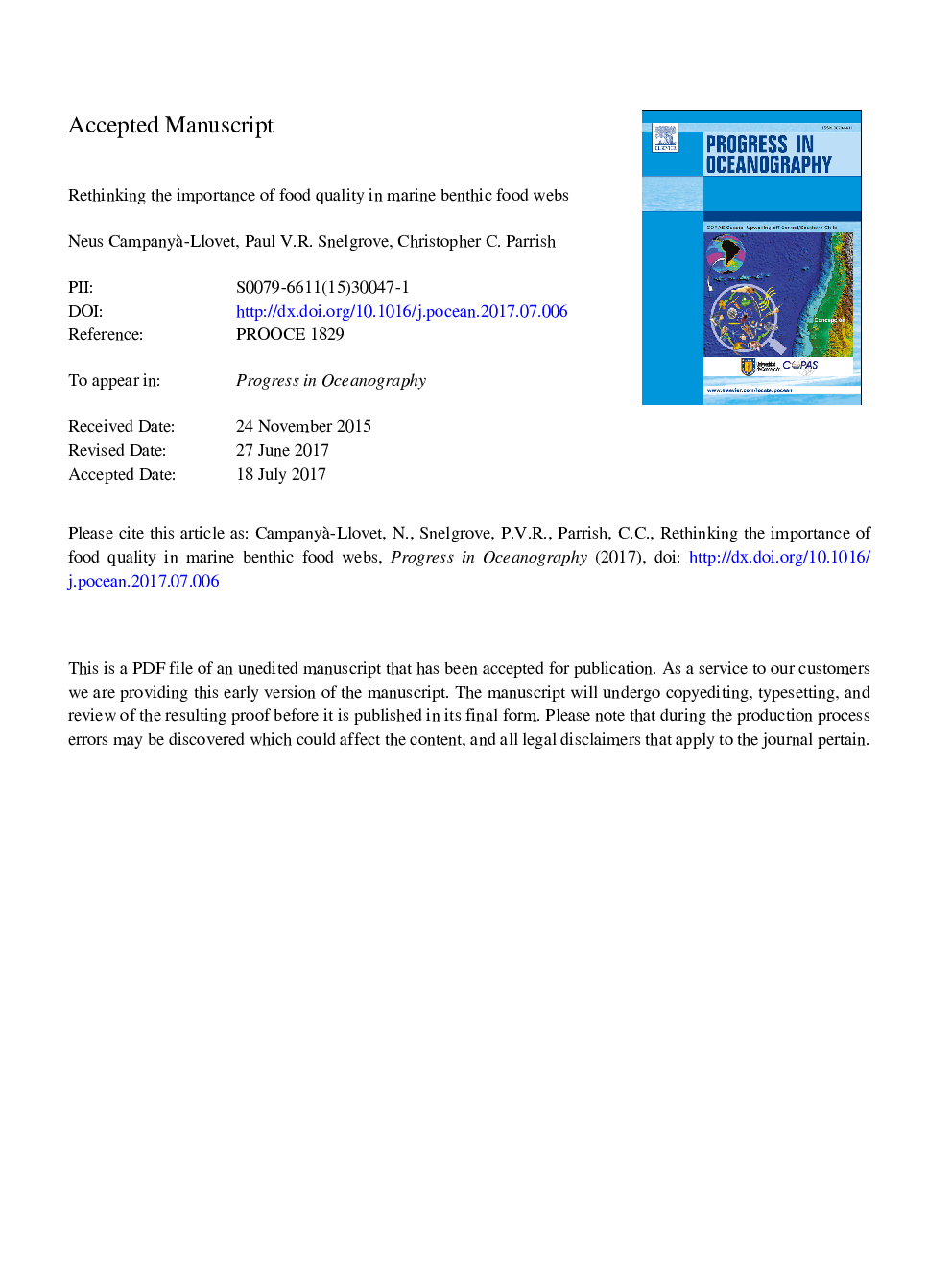| کد مقاله | کد نشریه | سال انتشار | مقاله انگلیسی | نسخه تمام متن |
|---|---|---|---|---|
| 5766486 | 1627902 | 2017 | 47 صفحه PDF | دانلود رایگان |
عنوان انگلیسی مقاله ISI
Rethinking the importance of food quality in marine benthic food webs
ترجمه فارسی عنوان
اهمیت کیفیت غذا در شبکه های مواد غذایی دریایی را در نظر بگیرید
دانلود مقاله + سفارش ترجمه
دانلود مقاله ISI انگلیسی
رایگان برای ایرانیان
کلمات کلیدی
بنتوس، تنوع زیستی، شبکه های غذایی، عرضه مواد غذایی، کیفیت غذا،
موضوعات مرتبط
مهندسی و علوم پایه
علوم زمین و سیارات
زمین شناسی
چکیده انگلیسی
Current knowledge on the role of food for benthic communities and associated food webs focuses on quantity of available organic matter; however, the few studies that specifically address food quality show significant potential influences on food web and community structure. We examine current understanding of food quality and consider its contribution to regulating benthic ecosystems. By assembling data from the literature we found that, whereas food quantity increases benthic stocks (i.e., abundances), various trophic groups respond differently to quality parameters, suggesting that food quality can alter benthic trophic structure substantially. Moreover, contrasting ecosystems respond differently to food quantity and quality inputs. Based on our literature review we find that, for many highly productive coastal marine ecosystems (coral reefs, seagrass meadows, kelp forests), the detrital compartment represents the most important primary food source because low nutritional value (i.e., hard skeleton, lignin, deterrent substances, etc.) often characterizes this high productivity. Strong seasonality in the flux of organic matter, such as in polar ecosystems, results in food webs based on relatively consistent but often poorer quality food sources (i.e., “food banks”). Benthic community structure may shift dramatically in food-poor deep-sea ecosystems where otherwise rare species become dominant in response to food pulses. These ecosystems appear to respond more strongly than other benthic ecosystems to quantity and quality of food input. In deep-sea chemosynthetic environments, high food quantity and quality fuel benthic communities through resource partitioning of specialized chemosynthesis-based food sources. Lastly, we argue that food quality may have significant implications for benthic ecosystem functioning and services (e.g., bioturbation, nutrient fluxes, organic carbon preservation), particularly in the context of global warming. These implications point to several key gaps and opportunities that future food web studies should consider by applying knowledge gained in aquaculture to field studies, understanding the mechanisms for particle selection within the detrital compartment, and better understanding how rising temperatures and ocean acidification impact ecosystem functioning through changes in food quality.
ناشر
Database: Elsevier - ScienceDirect (ساینس دایرکت)
Journal: Progress in Oceanography - Volume 156, August 2017, Pages 240-251
Journal: Progress in Oceanography - Volume 156, August 2017, Pages 240-251
نویسندگان
Neus Campanyà -Llovet, Paul V.R. Snelgrove, Christopher C. Parrish,
